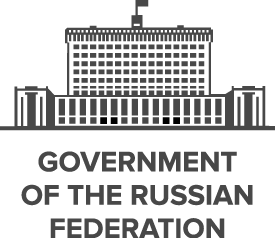Founded in the 12th century, the Principality of Muscovy was able to emerge from over 200 years of Mongol domination (13th-15th centuries) and to gradually conquer and absorb surrounding principalities. In the early 17th century, a new ROMANOV Dynasty continued this policy of expansion across Siberia to the Pacific. Under PETER I (ruled 1682-1725), hegemony was extended to the Baltic Sea and the country was renamed the Russian Empire. During the 19th century, more territorial acquisitions were made in Europe and Asia. Defeat in the Russo-Japanese War of 1904-05 contributed to the Revolution of 1905, which resulted in the formation of a parliament and other reforms. Repeated devastating defeats of the Russian army in World War I led to widespread rioting in the major cities of the Russian Empire and to the overthrow in 1917 of the imperial household. The communists under Vladimir LENIN seized power soon after and formed the USSR. The brutal rule of Iosif STALIN (1928-53) strengthened communist rule and Russian dominance of the Soviet Union at a cost of tens of millions of lives. After defeating Germany in World War II as part of an alliance with the US (1939-1945), the USSR expanded its territory and influence in Eastern Europe and emerged as a global power. The USSR was the principal adversary of the US during the Cold War (1947-1991). The Soviet economy and society stagnated in the decades following Stalin’s rule, until General Secretary Mikhail GORBACHEV (1985-91) introduced glasnost (openness) and perestroika (restructuring) in an attempt to modernize communism, but his initiatives inadvertently released forces that by December 1991 splintered the USSR into Russia and 14 other independent republics.
Following economic and political turmoil during President Boris YELTSIN's term (1991-99), Russia shifted toward a centralized authoritarian state under the leadership of President Vladimir PUTIN (2000-2008, 2012-present) in which the regime seeks to legitimize its rule through managed elections, populist appeals, a foreign policy focused on enhancing the country's geopolitical influence, and commodity-based economic growth. Russia faces a largely subdued rebel movement in Chechnya and some other surrounding regions, although violence still occurs throughout the North Caucasus.
Russia is a semi-presidential federation.
Members:
Resources
Displaying 761 - 765 of 1046Regional Law No. 41-oz “On soil fertility of agricultural land”.
This Regional Law establishes legal grounds of the relations between landowners, landlords, land tenants (including foreign natural and legal persons land lease holders) and state bodies in the sphere of ensuring soil fertility of agricultural land, and also establishes rights and duties of natural and legal persons performing agricultural production in relation to efficient use of soil fertility. Soil fertility of all types of agricultural land must ensure sufficient conditions for crop growing without oppression of soil organisms.
Regional Law No. 120-ZKO “On objects of cultural heritage”.
This Regional Law establishes the particulars of state protection of the objects of cultural heritage, including conservation, management and promotion thereof. Regional Administration shall be responsible for validation of the boundaries and mapping of areas containing objects of cultural heritage, types of land tenure and land use planning in the aforesaid areas. Objects of cultural heritage shall be subject to mandatory state registration. Land areas containing objects of cultural heritage shall be classified as land of cultural heritage.
Regional Law No. 51-oz “On transfer of land from one category to another”.
This Regional Law regulates the issues of transfer of land from one category to another. Transfer of land, except for agricultural land, pertaining to private or municipal ownership, shall be performed by local government. Transfer of agricultural land pertaining to private or municipal ownership shall be performed by the Regional Government. Transfer of urban land to any other land category shall be performed by the Regional Government.
Regional Law No. 17-ZKO “On maximum land plot area allotted for subsistence farming”.
This Regional Law establishes maximum total land area that can be owned or belong in any other form to citizens carrying out subsistence farming. Maximum land area of agricultural land cannot exceed 2 ha per each subsistence farm. In case of excess of the aforesaid limit the exceeding land area must be expropriated within one year from the date of origin of the aforesaid rights or within the same time period the citizen must be registered as individual entrepreneur in the form of peasant farm.
Regional Law No. 16-ZKO "On allotment of land parcels free of charge to some categories of citizens for individual construction".
This Regional Law establishes cases of allotment of public and municipal land parcels free of charge to some categories of citizens for individual construction to the following categories of citizens: (a) citizens with three or more children under 18 years of age; (b) young families, and single parents of maximum 35 years of age; (c) persons deprived of the only one housing facility as a result of natural or technological disaster; and (d) persons with handicapped children. Allotment of land parcels free of charge to the aforesaid categories shall be performed once-only.


